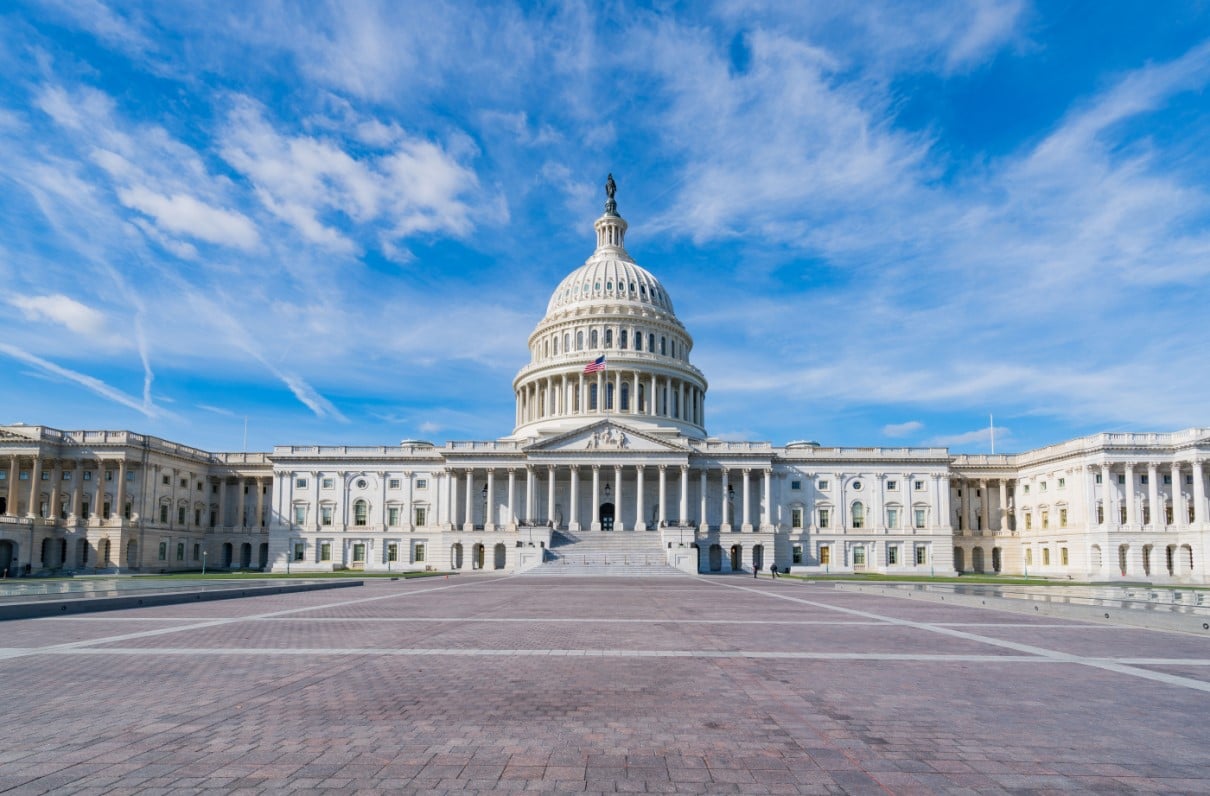The president signed the annual defense bill Dec. 23, marking 62 consecutive years the House and the Senate came together to pass this significant legislation in support of our national defense.
The 1,772-page National Defense Authorization Act (NDAA) covers a wide range of interests totaling $858 billion, with $817 billion going directly to DoD. The summary from the Senate Armed Services Committee provides an overview and, along with the legislation, serves as our reference. The six issues we want to highlight:
1. Pay Raise. The annual pay raise of 4.6% for both the uniformed services and federal civilian employees takes effect in January 2023. Those two raises are not always put together in the same legislation, but given the emphasis on mitigating rampant inflation and the rising costs of employment, the packaging made sense early on. Up next will be the efforts to secure the 2024 pay raise for our uniformed services, slated to be 5.2% per the Employment Cost Index released October 2022.
[RELATED: Here’s Why the 2024 Military Pay Raise Should Be the Largest in Decades]
2. Health Care Cuts and Realignment. Section 731 of the NDAA directs a “Briefing and report on the reductions or realignment of military medical manning and medical billets.” The report will need to clarify DoD’s preliminary observations regarding the analyses used to support any reduction or realignment of such billets. The briefing is due no later than Feb. 1, 2023, with the formal report due by May 31, 2023. The NDAA version passed by the House on June 8, 2022, required those reports to follow annually for five years, but that provision was omitted from the version signed into law.
3. Family Programs. The NDAA provides for much-needed assistance for military families in the form of a pilot program to reimburse military families for child care costs related to PCS moves. Further, the act directs a report on the recruiting and retention of DoD child care providers. It also authorizes up to 365 days of with-dependent Basic Allowance for Housing (BAH) payments for servicemembers whose sole dependent dies.
4. Housing Costs. The act puts a spotlight on other BAH factors, such as extending DoD’s authority to adjust BAH in high-cost areas and to coordinate efforts to assist servicemembers during housing shortages. To facilitate the reports and coordination, the act directs DoD to create a Chief Housing Officer, duties which should be performed by the Assistant Secretary of Defense for Energy, Installations, and Environment.
5. SBP Open Season. As we celebrate the conclusion of the repeal of the “widows tax,” effective with full payments on Feb. 1, 2023, we are happy to report the NDAA provides for an open season for the Survivor Benefit Plan (SBP) through 2023. This rare opportunity will provide eligible individuals a chance to opt in or opt out of the SBP. Find out more about SBP in this MOAA summary.
[RELATED: Retirees Get a Second Chance to Enroll In or Opt Out of the Survivor Benefit Plan]
6. Guard and Reserve Issues. MOAA has been lobbying for a solution for National Guard officers who experience extensive delay between federal recognition of rank following promotion at the state level. The NDAA directs DoD to backdate the effective date of rank for officers who warrant the federal recognition of their promotions. Additionally, the act authorizes transitional health care benefits for members of the National Guard who are separated from full-time duty, called, or ordered by the president or secretary of defense for a period of active service greater than 30 days.
These highlights are indicative of the impact MOAA and our grassroots network of advocates can make for our servicemembers past and present, their families, and survivors.
More to Accomplish
Given the end of this Congress, and the 118th Congress taking shape early in the new year, we continue to advocate for issues still needing support. Two issues we will need to work early:
- Concurrent Receipt. The Major Richard Star Act finished the 117th Congress with 335 cosponsors from the House and 66 from the Senate. Those are significant levels of support; however, we ran out of time in the session given the majority support came later in the year. For the 118th, we will need to ensure we amass the same support within the first six months of the year – targeting another entry into the Consensus Calendar to facilitate an opportunity for the bill to earn a floor vote from the House, or possibly be included in the FY 2024 NDAA.
- Arlington National Cemetery (ANC) Eligibility. MOAA will continue its efforts to preserve military honors for those who have already earned eligibility. Changing eligibility requirements to make room for someone who won’t be born for another 100 years is unfathomable; a better solution would be a joint effort from DoD and the VA to identify an existing VA cemetery ready to be developed and updated with the same military honors we find at ANC today.
MOAA remains immersed in addressing these issues and many more. Follow our efforts at the beginning of the year to stay current on the issues and the progress we have come to expect. And please make sure you are registered as one of MOAA’s advocates on our Legislative Action Center to be prepared to take immediate action when necessary.

